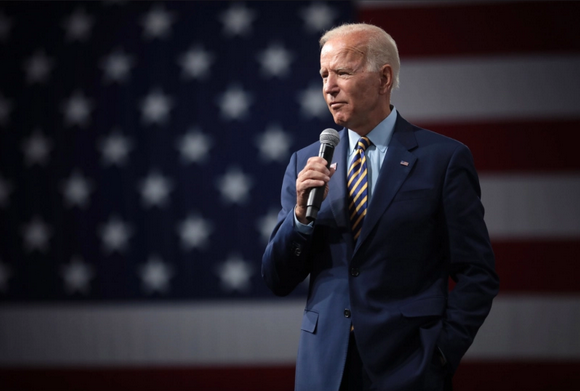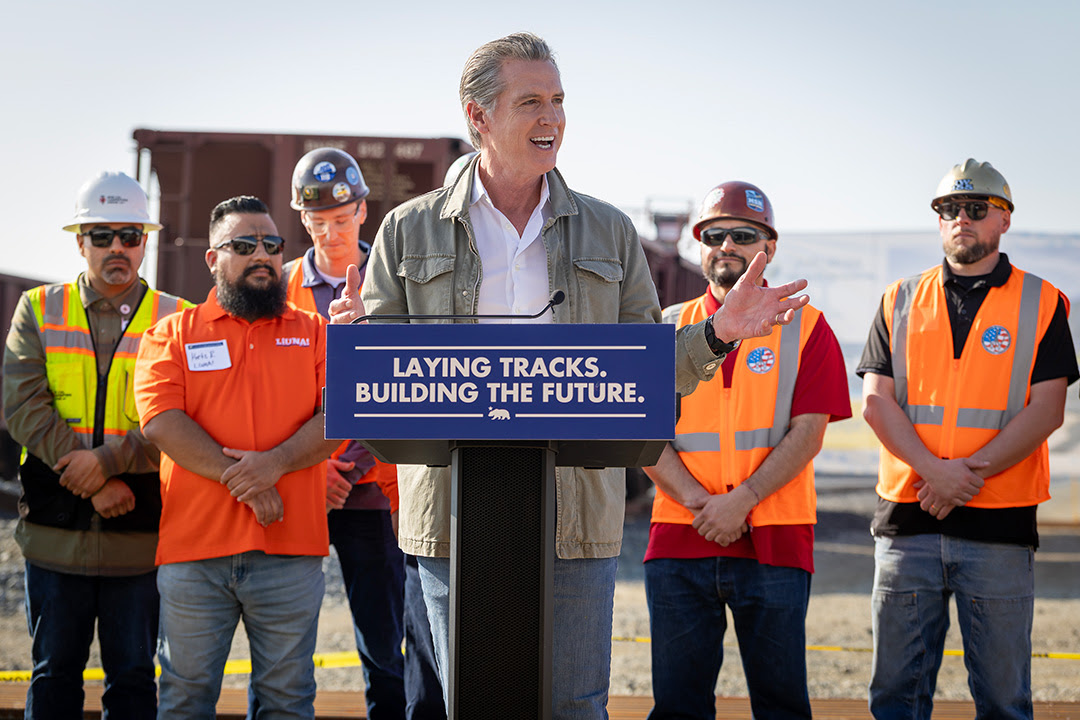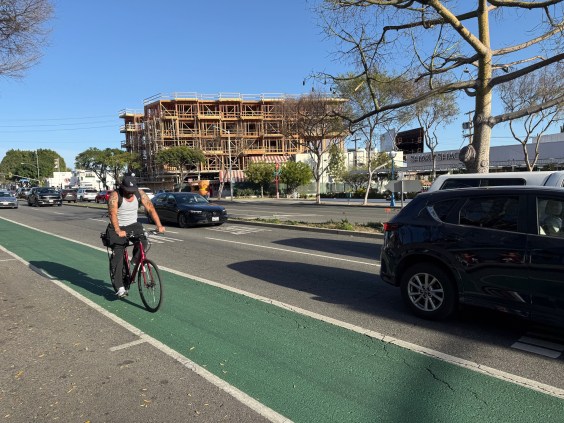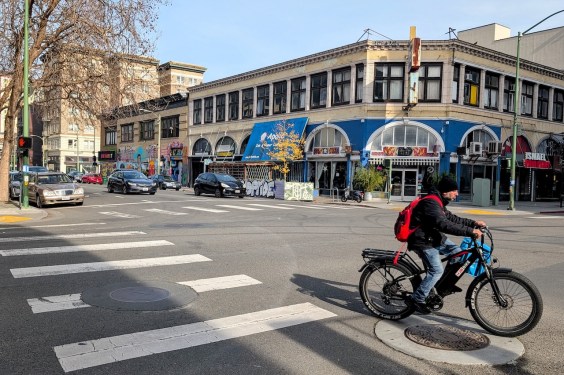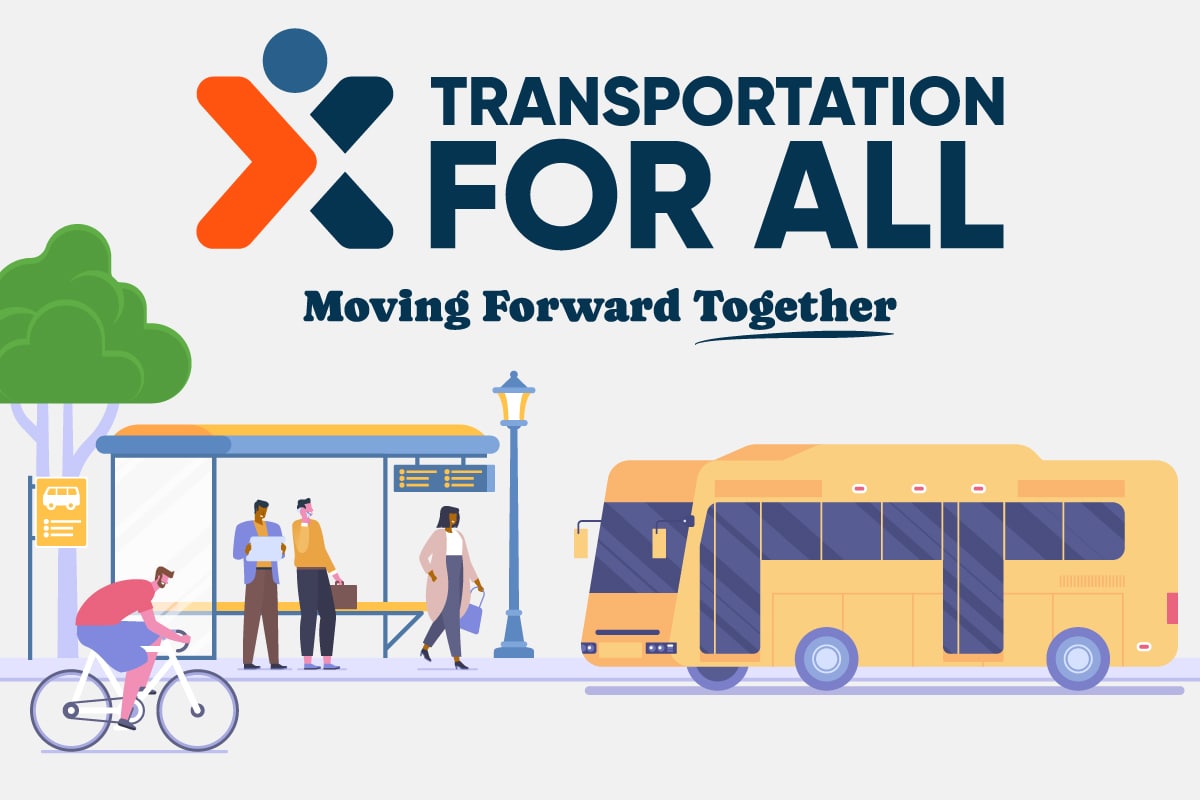Sustainable transportation advocates are already questioning how much President Biden's infrastructure package will transform our national addiction to cars — especially since hefty electric car incentives will hand drivers more money than transit riders.
In a fact sheet released this morning, the White House outlined the major initiatives in Biden's $2.25 trillion American Jobs Plan, a sweeping stimulus that is being likened to FDR's New Deal. The package is not to be confused with the potentially more ambitious reauthorization bill coming when the 2015 Fixing America's Surface Transportation Act expires in September, but the $621 billion it would invest into transit, roads, electric vehicles, and other transportation projects would undoubtedly affect on how Americans get around in the coming decade.
The plan commits a staggering $174 billion to electric vehicle development, adoption and charging, $115 billion to repair roads and bridges (although, notably, no new construction), $85 billion to transit maintenance and expansion, and a historic $80 billion to inter-city rail that would quadruple funding for Amtrak, true to the president's "Amtrak Joe" nickname.
A $20 billion program for vulnerable-road-user safety also made the cut, as did for another $20 billion program that would reconnect BIPOC neighborhoods sundered by highways. An unspecified amount of money will also be devoted to "an innovative new approach to eliminate state and local exclusionary zoning laws" that limit housing and commercial construction, which has important implications for walkability.
As expected, the package will be paid for by tax hikes on corporations and the wealthiest earners, with costs spread across eight years.
That all sounds good — but advocates have a few questions.
Question #1: Do we really need this much money for electric cars?
Biden promised an electric-vehicle revolution on the campaign trail, and he delivered on it in the American Jobs Plan: By far the largest part of the bill seeks to wean drivers off fossil fuels, with about $9 billion more dollars devoted to EVs than transit and intercity rail combined. Biden's $174 billion bet would fortify just about every link in the supply chain from raw-material extraction to manufacturing worker training, while building 500,000 EV charging stations by 2030, retrofitting the electric grid, giving individual consumers sale rebates and tax incentives, and more.
Advocate say something in the ballpark of $37.5 billion of those dollars would go towards transit buses, and a significant amount of the money would go towards electrifying the federal vehicle fleet, USPS, and a portion of the school bus fleet. But there's no denying that private EV drivers are major beneficiaries of this bill.
No one doubts that vehicle electrification is a critical harm-reduction strategy in our fight to curb climate change. But some advocates are wondering why cars feature quite so heavily in the package, considering that shifting drivers onto shared and active modes is even more critical to saving the planet and ending traffic violence, even if the vehicles run on renewables.
Question #2: How will we spend that $20 billion to make streets "safe for all"?
The American Jobs Plan commits $20 billion to "improve road safety for all users, including increases to existing safety programs and a new Safe Streets for All program to fund state and local 'vision zero' plans and other improvements to reduce crashes and fatalities, especially for cyclists and pedestrians."
That's an unprecedented sum, considering that the National Highway Traffic Safety Administration's budget is slightly less than $1 billion, and that the Transportation Alternatives program, one of the only pots of federal money that directly funds bike lanes and sidewalks, gets just $850 million a year. It's also $5 billion more than what was sought in the 2019 Vision Zero Act, which was considered a political non-starter at the time.
If the Jobs Plan follows that bill's lead, it will fund a gamut of projects from road diets to dedicated greenways. But advocates say it's unclear whether the new program will require states to use those dollars well, such as by requiring cities to design for safety over speed every time they repair or construct a road that's not a freeway. Advocates will also be watching to see whether the program will come with guardrails, such as a rule that prevents states from "flexing" those dollars to other programs.
Pretty excited about Biden’s proposal for $20 billion for safe streets for all! This funding couldn’t come soon enough for Nashville and many other cities! #saferstreets #citiesforpeople https://t.co/JVxCNGJlnO
— Erin Hafkenschiel (@ehafkenschiel) March 31, 2021
Question #3: Will road 'repair' projects morph into highway expansions?
Biden is getting a fair amount of love for embracing the "fix-it-first" principle in the package, which favors safety improvements to critical infrastructure; of the $115 earmarked for roads and bridges, no money is allocated to building new highways. So why does he try to sell us on road-related aspects of the package by touting their congestion benefits to drivers, evoking talking points found in a widely debunked studies that claim that drivers lose $160 billion a year in "productivity," fuel, and other costs while they sit in traffic?
Some advocates think that's because highway 'repair' projects these days often double as road-expansion projects — which could poke a hole in Biden's new repair-conscious reputation.
"'Reducing congestion' is a fool’s errand," wrote the team at Transportation for America in their reaction to the plan. "To truly focus on repair, the actual legislative language would require serious policy changes to ensure that this money isn’t diverted to road expansion."
It doesn't, but it does talk about relieving congestion and other buzz words that are used in place of "highway expansion." There's a lot of wiggle room in this language. https://t.co/9GQ7EtGmhY
— Beth Osborne (@BethOsborneT4A) March 31, 2021
Question #4: Will we reconnect neighborhoods right?
Another exciting and potentially historic element of the American Jobs Plan is the money it would devote to healing the scars of the "urban renewal" era. The bill would provide $20 billion for a "program that will reconnect neighborhoods cut off by historic investments" — exactly twice what Sen. Schumer and his colleagues pitched for a highway teardown program late last year.
But what that initiative will actually look like is still pretty vague — and if it doesn't prioritize justice for descendants of the residents of Black and brown neighborhoods that the highway system destroyed, it will only repeat the mistakes of the past. The briefing doesn't even clarify what it means to "reconnect" a neighborhood; it doesn't explicitly mention highway removal or land bridges at all, although, troublingly, it does mention "advanced pavements that recycle carbon dioxide" in its pitch for the program, suggesting that more or redone roads might be in the offing.
Still, advocates are cautiously optimistic— and they're already suggesting some freeways they'd like to see go.
Other pieces of the infrastructure plan:
— Nico Savidge (@NSavidge) March 31, 2021
- $115B for bridges, roads and highways (new Richmond-San Rafael bridge?)
- $20B for equity, including a program to "reconnect neighborhoods cut off by historic investments" (like 980 in Oakland?) https://t.co/KwymUwcvCi
Question #5: Will transit really get its due?
Transit advocates were thrilled to see that Biden's bill provides about 43 percent more money for transit and intercity rail than it does for roads and bridges. (Though, again, the math is less sunny when you factor in the EV incentives for private drivers).
But the White House didn't clarify whether the money could be used only for capital projects like building rail lines — an onerous restriction placed on most federal transit grants now — or whether they could also be used to fund operations. Many advocates argue that many public transportation networks sorely need reliable federal dollars to provide the quality service that we need to attract riders en masse.
Still, $165 billion for mass transportation is nothing to sneeze at — and advocates will no doubt push to make sure that every penny of it makes it into the final package, whether those dollars are flexible or not.
One thing I gather from this press briefing is that the Biden Administration wants people who are excited by this new plan they have to double transit funding etc. to make noise and try to help build political support.
— Angie Schmitt🚶♀️ (@schmangee) March 31, 2021
